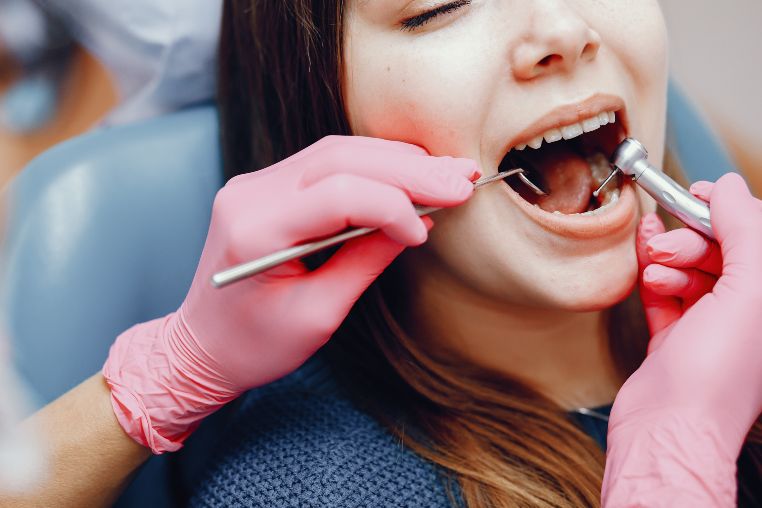Tooth pain after a dental filling is a common occurrence in many cases. Usually, the pain wears off in a day or two, and if it continues for longer than that, you will probably need to revisit the dentist. In this article, we will describe the most common causes of discomfort after the procedure.
Discomfort and sensitivity after a filling is not uncommon reaction, and it usually passes in a few days. Certain activities can provoke pain like brushing your teeth, flossing, eating hot or cold food, and consuming sweets. These are all normal reactions that you shouldn't be alarmed about, but if the pain doesn't subside, or gets worse, you should contact your dentist.
Due to the invasive nature of the filling procedure, which requires cleaning the decayed area, or removing old fillings, the nerves can get exposed. This can cause the nerves to get irritated or inflamed, leading to pain and sensitivity. Another thing that can cause problems is the filling itself. Some chemicals used in fillings can provoke an allergic reaction in the nerve and cause additional pain. If the nerve gets damaged during the procedure or is infected you will need to get a root canal or other treatment to get rid of the pain for good.
The inflammation of the dental pulp is the cause of pulpitis. There are two types of pulpitis: reversible and irreversible. The reversible pulpitis requires simple treatment, while the irreversible requires either an extraction of the nerve or a root canal. If left untreated, reversible pulpitis can turn irreversible where the nerve can no longer heal itself. While small fillings are rarely the cause of pulpitis, deep fillings that are close to the nerve can sometimes be the cause of the problem. The most common symptoms of pulpitis are sensitivity to temperature and sharp pain. If you have any doubts that you have pulpitis it is essential to get treatment as soon as possible to prevent a more serious issue.
An allergic reaction after a dental filling is rare but it can occur in some individuals. Some fillings are made out of amalgam, gold, and composites which can cause allergic reactions. Mild symptoms most commonly include rashes and swelling, while more severe symptoms can include vomiting, swelling of the tongue, difficulty breathing, and nausea. If you think you have an allergic reaction you should seek medical attention immediately, since in severe cases it can provoke an anaphylactic shock which can be life-threatening. Always inform your dentist of any allergies you may have beforehand in order to prevent an allergic reaction. This way, your dentist might have alternative materials that don't have allergens your organism doesn't tolerate.
If your teeth aren't aligned correctly after a filling procedure, it can cause a range of problems. If the filling material is not properly placed and adjusted it can change the way your teeth come together when you bite down. Teeth that protrude more than others receive more pressure and are more susceptible to inflammation. It is important to fix this issue immediately in order to prevent inflammation and chipping, especially if you have sensitive teeth. The issue is usually easy to fix and it requires the dentist to file away the excess material that was used for filling.
Biting down on something hard with delicate fillings can cause a crack through which bacteria can get to the center of your tooth. This can lead to decay and gum disease which can cause serious pain if left untreated.

If the filling isn't properly fitted into the tooth it can rub against the root and cause irritation and pain, which can further lead to inflammation and infection. It is important to contact the dentist right away to fix the loose filling.
This issue occurs when two different metal fillings touch one another resulting in creating a small electrical current. This issue isn't very common these days since amalgam and gold fillings aren't used that much anymore.
While some mild discomfort on pain is normal after getting a filling, it is important to call your dentist if the pain gets severe and doesn't go away after a few days. Ignoring tooth pain can lead to serious further dental problems that may require more extensive treatment in the future. Pain that consists for more than a few days, pain when biting down, pain that wakes you up at night, sensitivity to hot and cold, swelling, and fever, are all symptoms that require medical attention as soon as possible. Your dental health is of the utmost importance, and it's always better to err on the side of caution when it comes to tooth pain.

